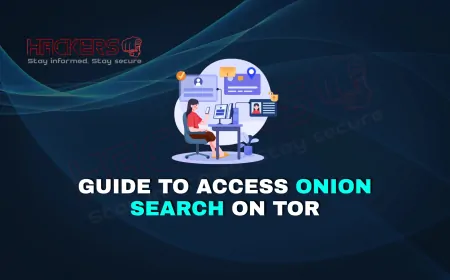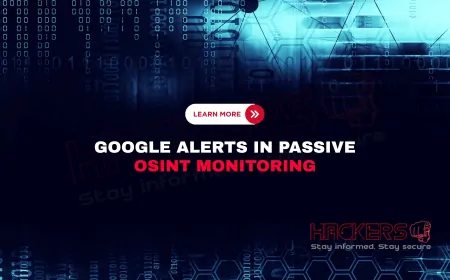What Makes Kali Linux the Best OS for Ethical Hacking?
In today's digital age, where cyber threats lurk around every corner, ethical hacking has become a crucial skill for protecting our online world. Imagine being the digital detective who uncovers vulnerabilities before the bad guys do—that's the essence of ethical hacking. At the heart of this exciting field stands Kali Linux, a powerhouse operating system that's become synonymous with penetration testing and security auditing. But what exactly sets Kali apart from the crowd? In this comprehensive guide, we'll dive deep into the features, tools, and community that make Kali Linux the go-to choice for ethical hackers in 2025 and beyond. Whether you're a curious beginner or a seasoned pro looking to refresh your knowledge, this post will explain it all in simple terms, helping you understand why Kali reigns supreme in the realm of cybersecurity.

Table of Contents
- What is Kali Linux?
- The History and Evolution of Kali Linux
- Key Features That Set Kali Apart
- Pre-Installed Tools: The Heart of Kali
- Customization and Flexibility
- The Thriving Community and Support
- Comparison with Other Operating Systems
- Real-World Use Cases in Ethical Hacking
- Staying Current: Updates and Security
- Potential Drawbacks and Considerations
- Conclusion
- FAQs
What is Kali Linux?
Kali Linux is a specialized Linux distribution designed primarily for cybersecurity tasks like penetration testing, ethical hacking, and digital forensics. Unlike everyday operating systems such as Windows or macOS, which focus on general productivity, Kali is built from the ground up for security professionals. It's based on Debian, a stable and reliable Linux variant, but customized with tools and features tailored for hacking ethically—that means with permission to find and fix weaknesses in systems.
At its core, Kali provides a platform where users can simulate cyberattacks to test defenses. This helps organizations strengthen their security before real threats strike. In 2025, with cyber incidents on the rise, tools like Kali are more important than ever. It's free, open-source, and available for download from the official website, making it accessible to anyone interested in learning ethical hacking.
One of the standout aspects is its "live boot" capability. You can run Kali directly from a USB drive without installing it on your computer, which is perfect for testing without risking your main setup. This flexibility appeals to beginners who want to dip their toes in without commitment. Kali also supports various hardware, including ARM devices like Raspberry Pi, allowing ethical hackers to work on the go or in embedded systems.
Ethical hacking, often called "white-hat hacking," involves using hacking techniques for good. Kali equips users with the necessary arsenal to perform vulnerability assessments, network scanning, and more. But remember, the power comes with responsibility—always ensure you have explicit permission before using these tools on any system.
The History and Evolution of Kali Linux
Kali Linux didn't appear out of thin air; it has a rich history rooted in the cybersecurity community. It evolved from BackTrack, a popular penetration testing distribution that debuted in 2006. BackTrack combined tools from WHAX and Auditor Security Collection, creating a unified platform for security testing.
In 2013, Offensive Security, the company behind Kali, rebranded and rebuilt BackTrack into Kali Linux. This shift to a Debian base improved stability and package management. Since then, Kali has seen regular updates, adopting a rolling release model in 2016. This means users get continuous updates rather than waiting for major versions, keeping the OS fresh with the latest tools and security patches.
By 2025, Kali has released several versions, incorporating modern features like enhanced ARM support and integration with cloud environments. Offensive Security also offers certifications like the Offensive Security Certified Professional (OSCP), which heavily features Kali, solidifying its place in professional training.
The evolution reflects the changing landscape of cybersecurity. As threats like ransomware and AI-driven attacks emerge, Kali adapts by including new tools and frameworks. This commitment to staying ahead makes it indispensable for ethical hackers who need reliable, up-to-date resources.
Key Features That Set Kali Apart
What truly makes Kali shine are its unique features designed for ethical hacking. First, it's Debian-based, inheriting a robust package system called APT (Advanced Package Tool). This allows easy installation and updates of software, ensuring your tools are always current.
Another key feature is the rolling release model. Unlike fixed-point releases, Kali updates continuously, providing the latest security tools without needing a full reinstall. This is crucial in a field where new vulnerabilities are discovered daily.
Kali also emphasizes forensics mode, where the system runs without mounting drives or altering data, ideal for digital investigations. Multi-language support and customizable ISOs let users tailor the OS to their needs, such as creating a lightweight version for specific tasks.
Security is baked in: Kali runs as root by default (the superuser with full access), but users are encouraged to create standard accounts for safety. It includes full disk encryption options to protect sensitive data. These features, combined with its focus on penetration testing, position Kali as the top choice for ethical hackers seeking efficiency and power.
Pre-Installed Tools: The Heart of Kali
The real magic of Kali lies in its vast collection of pre-installed tools—over 600 in total. These are ready to use out of the box, saving time on setup. For beginners, this means you can start practicing ethical hacking without hunting for software.
Tools are categorized into areas like information gathering, vulnerability analysis, wireless attacks, and exploitation. This organization makes it easy to find what you need. For instance, in a penetration test, you might start with reconnaissance using tools to map networks, then move to exploitation.
Here's a table highlighting some of the top tools in Kali Linux for ethical hacking:
| Tool Name | Description | Primary Use Case |
|---|---|---|
| Nmap | A network scanner that discovers hosts and services on a network. | Reconnaissance and port scanning. |
| Metasploit Framework | A platform for developing, testing, and executing exploits. | Exploitation of vulnerabilities. |
| Wireshark | A packet analyzer for capturing and inspecting network traffic. | Network protocol analysis. |
| Aircrack-ng | A suite for assessing Wi-Fi network security. | Wireless auditing and cracking. |
| Burp Suite | A web vulnerability scanner and proxy tool. | Web application testing. |
| John the Ripper | A password cracking tool. | Password strength testing. |
| Hydra | A fast network logon cracker. | Brute-force attacks on logins. |
| Sqlmap | An automatic SQL injection and database takeover tool. | Database vulnerability exploitation. |
| Maltego | A link analysis tool for gathering intelligence. | Open-source intelligence (OSINT). |
| BeEF | Browser Exploitation Framework for targeting web browsers. | Client-side attacks. |
These tools cover a wide range of ethical hacking needs, from scanning to post-exploitation. For example, Nmap can map an entire network in minutes, revealing open ports that might be entry points for attacks. Metasploit, often called the "hacker's Swiss army knife," allows users to exploit known vulnerabilities safely in controlled environments.
Beyond these, Kali includes categories for reverse engineering, stress testing, and even hardware hacking. This comprehensive toolkit eliminates the need to compile or install tools manually, which can be a hurdle in other OS. In 2025, with AI integration in some tools, Kali continues to evolve, incorporating machine learning for smarter vulnerability detection.
Customization and Flexibility
Kali's strength lies in its adaptability. Users can customize the OS extensively, from the desktop environment to the toolset. It defaults to GNOME, but you can switch to lighter options like XFCE for better performance on older hardware.
Custom ISOs allow building personalized versions, such as one focused on wireless security or forensics. This is done via the Kali live-build system, where you select packages and configurations. For ethical hackers, this means creating a tailored toolkit for specific jobs, like red teaming exercises.
Scripting support is robust, with languages like Python and Bash pre-installed. You can automate tasks, combining tools into custom workflows. For beginners, the graphical interface eases the learning curve, while command-line pros appreciate the terminal's power.
Flexibility extends to deployment: Run it on VMs with VirtualBox or VMware, or natively on hardware. Cloud images for AWS and Azure make it easy to spin up instances for remote testing. This versatility ensures Kali fits any ethical hacking scenario, from classroom learning to enterprise audits.
The Thriving Community and Support
No OS is an island, and Kali's community is a major reason for its success. Offensive Security maintains active forums where users share tips, troubleshoot issues, and collaborate on projects. The Kali documentation is comprehensive, covering everything from installation to advanced tool usage.
Beyond official channels, communities on Reddit (r/KaliLinux, r/netsec), Discord, and Stack Overflow provide peer support. Annual events like DEF CON and Black Hat often feature Kali in workshops, fostering knowledge exchange.
Certifications like OSCP require hands-on Kali experience, creating a pipeline of skilled users who contribute back. In 2025, with cybersecurity education booming, free resources like Kali's training modules help beginners start. This ecosystem ensures you're never alone, making Kali ideal for learning and professional growth.
Comparison with Other Operating Systems
While Kali leads the pack, alternatives exist. Parrot Security OS, also Debian-based, offers a similar toolset but with a focus on privacy and anonymity, including Tor integration. It's lighter and appeals to users needing forensics tools.
BlackArch Linux boasts over 2,800 tools, more than Kali, but it's Arch-based, which can be steeper for beginners due to manual configurations. Ubuntu or Fedora can be customized for hacking, but lack pre-installed tools, requiring more setup.
Tails emphasizes privacy with amnesia mode, great for anonymous browsing but not full penetration testing. Windows Subsystem for Linux (WSL) allows running Kali on Windows, but it's limited compared to native installs.
Kali's edge? Its balance of usability, tools, and community support. In surveys, it's consistently ranked top for ethical hacking, thanks to Offensive Security's backing and regular updates.
Real-World Use Cases in Ethical Hacking
Kali shines in practical applications. In penetration testing, teams use it to simulate attacks on networks, identifying weak spots like unpatched software. For example, using Metasploit to exploit a vulnerability in a test environment helps recommend fixes.
Digital forensics investigators boot Kali live to analyze compromised systems without tampering evidence. Wireless security audits with Aircrack-ng reveal insecure Wi-Fi setups in offices.
Bug bounty hunters rely on Kali for web app testing with Burp Suite, finding flaws in sites for rewards. In education, Kali powers labs teaching ethical hacking basics.
In 2025, with IoT devices proliferating, Kali's ARM support aids in testing smart home security. Red team exercises, where teams mimic adversaries, often center on Kali for realistic simulations.
Staying Current: Updates and Security
Kali's rolling release keeps it ahead. Running "apt update && apt upgrade" fetches the latest packages. This includes tool updates for new exploits and patches for OS vulnerabilities.
Offensive Security tests updates rigorously, minimizing breaks. Users can contribute via bug reports, enhancing quality. Security features like AppArmor and SELinux provide additional protection layers.
In a fast-evolving threat landscape, this agility is key. Kali integrates emerging tech like AI for automated scanning, ensuring ethical hackers have cutting-edge capabilities.
Potential Drawbacks and Considerations
Kali isn't perfect. It's not ideal as a daily driver—its root default can lead to mistakes, and frequent updates might cause instability. For general tasks like web browsing, it's overkill and less user-friendly than Ubuntu.
Beginners might feel overwhelmed by the tool abundance. Ethical use is paramount; misusing Kali can lead to legal issues. Hardware compatibility, especially Wi-Fi cards, sometimes requires tweaks.
Despite these, the pros outweigh cons for its intended purpose. Start with a virtual machine to mitigate risks.
Conclusion
Kali Linux stands out as the best OS for ethical hacking due to its specialized design, vast toolset, customization options, and strong community. From its Debian roots to continuous updates, it provides everything needed to tackle cybersecurity challenges in 2025. While alternatives exist, Kali's balance of power and accessibility makes it the preferred choice for beginners and experts alike. As cyber threats evolve, Kali evolves with them, empowering ethical hackers to safeguard our digital world. If you're inspired to start, download Kali today and join the ranks of white-hat heroes. Remember, with great power comes great responsibility—hack ethically and make a positive impact.
FAQs
Is Kali Linux only for hacking?
No, while it's designed for ethical hacking and penetration testing, it can also be used for digital forensics, security research, and even general Linux tasks, though it's not recommended as a primary OS.
What makes Kali better than other Linux distros for ethical hacking?
Kali comes pre-loaded with over 600 specialized tools, has a rolling release for constant updates, and is backed by a dedicated cybersecurity community, making it more efficient for security tasks.
Can beginners use Kali Linux?
Yes, beginners can start with Kali, especially in live mode or a virtual machine. There are plenty of tutorials and resources to guide you through the basics.
Is Kali Linux free?
Absolutely, Kali is free to download and use, as it's open-source software developed by Offensive Security.
What is the latest version of Kali Linux in 2025?
As of 2025, Kali follows a rolling release model, so the "latest" is always the updated version. Check the official site for the current build.
Does Kali Linux require a powerful computer?
Not necessarily; minimum specs are modest (1 GHz CPU, 1 GB RAM, 20 GB storage), but more resources improve performance with heavy tools.
Can I run Kali Linux on a USB drive?
Yes, Kali's live boot feature allows running it from a USB without installation, perfect for portable use.
What is penetration testing?
Penetration testing is simulating cyberattacks to find vulnerabilities in systems, networks, or applications, helping to improve security.
Is using Kali Linux illegal?
No, using Kali is legal, but applying its tools without permission on others' systems is illegal. Always practice ethically.
How do I update tools in Kali?
Run "sudo apt update && sudo apt upgrade" in the terminal to update the system and tools.
What is Metasploit in Kali?
Metasploit is a framework for exploiting vulnerabilities, allowing ethical hackers to test and demonstrate security weaknesses.
Can Kali be installed alongside Windows?
Yes, you can dual-boot Kali with Windows by partitioning your drive during installation.
What is OSINT in ethical hacking?
OSINT stands for Open-Source Intelligence, gathering publicly available information using tools like Maltego in Kali.
Does Kali support wireless hacking?
Yes, with tools like Aircrack-ng, Kali excels in auditing Wi-Fi networks for security flaws.
How does Kali help with web security?
Tools like Burp Suite and Sqlmap allow testing web applications for vulnerabilities like injections and cross-site scripting.
What is the OSCP certification?
OSCP is the Offensive Security Certified Professional, a hands-on certification that uses Kali for practical ethical hacking exams.
Can Kali run on Raspberry Pi?
Yes, Kali has ARM images specifically for devices like Raspberry Pi, enabling portable hacking setups.
What is forensics mode in Kali?
Forensics mode boots Kali without mounting drives, preserving evidence during digital investigations.
How do I learn ethical hacking with Kali?
Start with official documentation, online tutorials, and practice in a safe lab environment using virtual machines.
Why is Kali based on Debian?
Debian provides a stable foundation with excellent package management, allowing Kali to focus on security tools.
What's Your Reaction?










































































